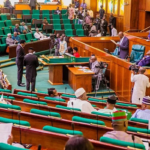Executive Director of the National Primary Health Care Development Agency (NHCDA), Dr Faisal Shuaib, has said that the travel ban on Covishield COVID-19 vaccine which is the same as AstraZeneca vaccine that is produced in India was a temporary release because there are different validation processes that are used for different vaccines.
Shuaib who was answering questions during the joint weekly update on COVID-19 vaccine with World Health Organisation alongside UNICEF cited an example of the National Agency for Food and Drug Administration and Control (NAFDAC) which has had to list COVID-19 vaccines from India, covishield, J&J, Pfizer bioNtech said even if it is the same vaccine, as long as it is produced in a different facility, they have to go through that same process.
According to Shuaib: “The European Union(EU) is not banning permanently or failing to recognise AstraZeneca from India.
“It is just that the Indian authorities have to also go through that process to get approved. It is not anything to be worried about”.
“The World Health Organization (WHO) actually came out very clearly to clear the air that it doesn’t mean that there is any inferiority in terms of the quality of the vaccination”.
“I am sure that in the next few days, you will read in the reports that indicate that the EU will accept vaccine certificates from those countries that have used the covishield or Oxford/AstraZeneca vaccine from India.”
Meanwhile, the World Health Organization (WHO) has slammed the European Union (EU) on their position that travel certificates for Covishield that is produced in India will not be recognised by it for travel.
The Country Representative of the World Health Organization (WHO), Kazadi Molumbo, stressed that due to the unequal spread in the availability of vaccines, especially between the rich and low-income countries, the presentation of proof of COVID-19 vaccination as a prerequisite for travel is untenable.
Molumbo further stated that all the vaccines that have been approved for emergency use listings are effective in providing protection against COVID-19 as the global health body stated that no country or region should be sanctioned or face travel restriction on the basis of COVID-19 vaccination.
“WHO has updated its recommendation as of July 2nd 2021. We do not recommend making proof of COVID-19 vaccination a necessary provision to enter any country.”
“This is particularly because of the widening and unequal spread in vaccine availability between the wealthy and lower-income countries.”
“Under the provisions of the International Health Regulations, vaccines will have to be approved by the WHO and be universally available before it can be considered as a prerequisite for travel.
“No region or country should face sanctions or restrictions because they are unable to get vaccines.”
Nigeria prepares to receive additional vaccine supply to commence phase 2 of its strategic vaccination plan in August.
YOU SHOULD NOT MISS THESE HEADLINES FROM NIGERIAN TRIBUNE
We Have Not Had Water Supply In Months ― Abeokuta Residents
In spite of the huge investment in the water sector by the government and international organisations, water scarcity has grown to become a perennial nightmare for residents of Abeokuta, the Ogun State capital. This report x-rays the lives and experiences of residents in getting clean, potable and affordable water amidst the surge of COVID-19 cases in the state…FG says travel ban FG says travel ban
Selfies, video calls and Chinese documentaries: The things you’ll meet onboard Lagos-Ibadan train
The Lagos-Ibadan railway was inaugurated recently for a full paid operation by the Nigerian Railway Corporation after about a year of free test-run. Our reporter joined the train to and fro Lagos from Ibadan and tells his experience in this report…FG says travel ban FG says travel ban






